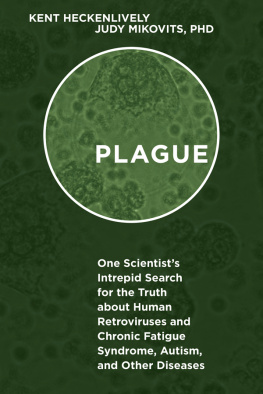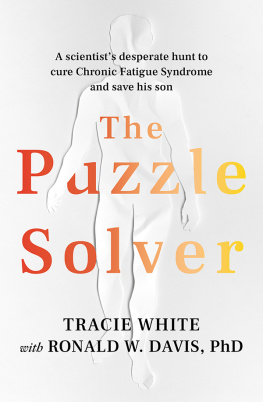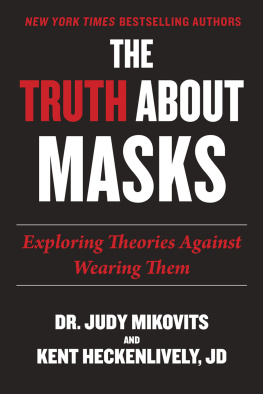Disclaimer
The factual information presented herein is based on the experiences, documents, and recollections of the authors, as well as the various individuals who were involved in these events.
However, the conversations reported within the text are written from the memory of the authors and others involved in these events, as well as supporting documentation when available, and only represent their best recollection. These recollections are not intended to be statements of material facts, but rather the opinion of the authors and others involved in these events as to what was said and their interpretation of the meaning of those conversations.
Neither the authors nor the publisher claims that the conversations are accurately recorded, and we apologize in advance for any omissions or errors in content or meaning.
All the people and events depicted are real. Some of the names have been changed for the protection of the individuals involved.
Many of the primary documents supporting the information found in this book are available at www.plaguethebook.com.
Copyright 2014 by Kent Heckenlively and Judy Mikovits
Foreword copyright Hillary Johnson 2014
Grateful acknowledgment is made to Hillary Johnson for permission to reprint quotes from her 2009 speech, The Why.
All rights reserved. No part of this book may be reproduced in any manner without the express written consent of the publisher, except in the case of brief excerpts in critical reviews or articles. All inquiries should be addressed to Skyhorse Publishing, 307 West 36th Street, 11th Floor, New York, NY 10018.
Skyhorse Publishing books may be purchased in bulk at special discounts for sales promotion, corporate gifts, fund-raising, or educational purposes. Special editions can also be created to specifications. For details, contact the Special Sales Department, Skyhorse Publishing, 307 West 36th Street, 11th Floor, New York, NY 10018 or .
Skyhorse and Skyhorse Publishing are registered trademarks of Skyhorse Publishing, Inc., a Delaware corporation.
Visit our website at www.skyhorsepublishing.com.
10 9 8 7 6 5 4 3 2 1
Library of Congress Cataloging-in-Publication Data is available on file.
Cover design by Brian Peterson
Print ISBN: 978-1-62636-565-0
Ebook ISBN: 978-1-62873-929-9
Printed in the United States of America
To the researchers who labor every day to protect the integrity
of their work from special interests and the patients
who depend on this unbiased science.
An inefficient virus kills its host. A clever virus stays with it.
James Lovelock
You do not become a dissident just because you decide one day to take up this most unusual career. You are thrown into it by your personal sense of responsibility, combined with a complex set of external circumstances. You are cast out of the existing structures and placed in a position of conflict with them. It begins as an attempt to do your work well and ends with being branded an enemy of society.
Vclav Havel
Contents
Foreword
A Disease Able to Affect the Economies of Nations
by Hillary Johnson
Hers was the last presentation of the day and the moderator allowed a final question. I raised my hand. Is it true that you have discovered a novel pathogen in this disease? I had heard a rumor but my expectations couldnt have been lower. Silence ensued while Judy Mikovits gripped the sides of the podium as if weighing her options. Yes, she finally said. There was scattered laughter in the hall, as if she had just made a joke. Only an audience of people who have been ill for a very long time and who have even the slightest knowledge of the fraught history of their disease could be so devoid of hope that such a claim could be considered laughable. Its not a new pathogen, Mikovits pressed on, suddenly lowering her voice to a degree barely audible. But it is new to this disease. We have submitted a paper to Science , she added.
On that intriguing scientific riddle, the annual scientific conference held by the U.K. charity Invest in ME at One Birdcage Walk near Londons Houses of Parliament ended. It was May of 2009. My friendship and professional relationship with Judy Mikovits began. She could not have imagined the inferno she was about to enter, the ups and downs and startling turns of which are described in this book.
I would watch and listen in sympathy over the next three years as Mikovits, challenged and derided by critics in a way few scientists will ever experience, seemed to leap from one circle of hell to another. Ultimately, her crime would emerge as heresy, a sub rosa charge reserved for anyone who dared offer evidence for a viral cause and, worse, transmissibility, in a disease governments on every continent had for three decades effectively disappeared with a contradictory mlange of explanations, none of them logical.
With her pending publication still undergoing editing, Mikovits was about to lead a battle charge in what has often been described as medicines holy war. But then, the eleven-syllable myalgic encephalomyelitis, understandably shorthanded to ME, has never been regarded as an ordinary disease, nor has the public health response to it been anywhere near normal. Instead, its been saddled with an extraordinary burden of meaning , a word Susan Sontag employed in her famous essay Illness as Metaphor. Nothing is more punitive than to give a disease meaningthat meaning invariably being a moralistic one, Sontag wrote. Any important disease whose causality is murky, and for which treatment is ineffectual, tends to be awash in significance.
Since its emergence in the late 1970s in pandemic form, ME has been touted as a psychiatric affliction of people with poor coping strategies or histories of unachievable ambition, as one American government scientist wrote in an influential paper in 1988. Ultimately, any hypothesis regarding the cause of [ME] must incorporate the psychopathology that accompanies it and, in some cases, precedes it, he added. Aided by a passive lay press, government scientists have sought to dismiss the disease by labeling sufferers with all manner of deficiencies and malevolent motives. That list has included malingering and cheating welfare systems, being either sympathy-seekers or Type A personalities who one day simply fell apart, or people who read about the disease and wanted to have it. The Centers for Disease Control (CDC) probably wins any contest as to which US government entity has done more to trash victims and belittle the disease. CDC has trotted out hysteria, yuppie burn out, a genetically-linked inability to handle stress, a history of childhood sexual molestation, doctors working themselves into a frenzy, collusion between patients and doctors, and an epidemic of diagnoses, to name a few of the untenable causes handed down from on high over the past thirty years.
Any collective memory of just how suddenly and aggressively this disease emerged in the late 1970s and early 1980s, especially in large coastal cities like New York, Boston, Los Angeles, and San Francisco, recedes with each passing year. Anyone born after, say 1985 or 1990, will be unable to recall a period in their own lives when this scourge was virtually unknown. Yet, by the mid-1980s, distressed doctors and desperate patients had turned the disease into the top category of inquiry at both the Centers for Disease Control and public health departments in the major cities of this country; eventually, their calls both to the CDC and NIH exceeded queries about AIDS at the height of the AIDS epidemic.














